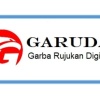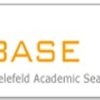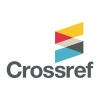Pengaruh adversity quotient terhadap kemandirian, motivasi, dan hasil belajar siswa
Abstract
The learning process at school will get results that are in accordance with educational goals, including being influenced by Adversity Quotient (AQ) or the intelligence of overcoming difficulties and obstacles in the learning process. AQ is one of the elements that can affect independence, motivation and learning outcomes in mathematics.
This type of research is a survey research with a quantitative approach to determine the structural equation model related to the Adversity Quotient variable on the independence, motivation, and mathematics learning outcomes of high school students. This research was carried out in five public high schools in semester 2 of the 2021-2022 academic year. . To obtain complete and accurate data in this study, the data collection technique carried out by the researcher is the questionnaire method (questionnaire).The results of the study revealed that the structural equation model obtained had a coefficient of determination of 88.5%, meaning that the influence of the adversity quotient on independence, motivation, and mathematics learning outcomes was 88.50%, while the remaining 11.5% was explained by other factors. In addition, there is a positive and significant influence on learning independence with a contribution of 94.1% means that it has a positive and significant influence on independent learning. The influence of the adversity quotient on learning motivation is 94.3%, meaning that it has a positive and significant influence on learning motivation. And obtained a positive and significant influence between the adversity quotient on learning outcomes 31.4%, meaning that it has a positive and significant contribution to learning outcomes.
Full Text:
PDFReferences
Astuti, T. A., & Jailani. (2021). Kontribusi kompetensi guru matematika SMP terhadap prestasi belajar siswa. Jurnal Riset Pendidikan Matematika, 7(2), 241–253.
Depdiknas. (2016). Permendikbud nomor 23 Tahun 2016 tentang standar penilaian pendidikan. 1–12. https://doi.org/10.31227/osf.io/munp2
Hair Jr., J. F., Gabriel, M. L. D. da S., & Patel, V. K. (2014). Modelagem de Equações Estruturais Baseada em Covariância (CB-SEM) com o AMOS: Orientações sobre a sua aplicação como uma Ferramenta de Pesquisa de Marketing. Revista Brasileira de Marketing, 13(2), 44–55. https://doi.org/10.5585/remark.v13i2.2718
Izzah, L. (2019). Kontribusi Kemandirian Belajar, AQ (Adversity Quotient) dan Motivasi Belajar Terhadap Hasil Belajar Matematika Siswa. Skripsi, UIN Sunan Ampel Surabaya.
Krismony, N. P. A., Parmiti, D. P., & Japa, I. G. N. (2020). Pengembangan instrumen penilaian untuk mengukur motivasi belajar siswa SD. Jurnal Ilmiah Pendidikan Profesi Guru, 3(2), 249–258. https://doi.org/10.23887/jippg.v3i2.28264
Mentari, A., & Sanova, Y. (2019). Peningkatan hasil belajar matematika siswa melalui pembelajaran berbantuan geogebra di kelas XII IPA 9 SMA Negeri 1 Palembang. Jurnal Gantang, 4(1), 1–6. https://doi.org/10.31629/jg.v4i1.821
Nurhayati, N., & Fajrianti, N. (2015). Pengaruh Adversity Quotient (AQ) dan motivasi berprestasi terhadap prestasi belajar matematika. Formatif: Jurnal Ilmiah Pendidikan MIPA, 3(1), 72–77. https://doi.org/10.30998/formatif.v3i1.110
Qalbu, N. (2021). Pengaruh kemandirian belajar terhadap hasil belajar matematika siswa kelas VI SDIT Nurul Hikmah Tanjung Jabung Timur. 1–83. http://repository.uinjambi.ac.id/id/eprint/8050
Ruri Rantau, Syamsuri Syamsuri, Hepsi Nindiasari. (2022). Pengaruh kepercayaan diri dan minat terhadap prestasi belajar matematika siswa madrasah aliyah swasta di Kabupaten Pandeglang. TIRTAMATH: Jurnal Penelitian dan Pengajaran Matematika, 4 (1), 26-36.
Safi’i, A., Muttaqin, I., Sukino, Hamzah, N., Chotimah, C., Junaris, I., & Rifa’i, M. K. (2021). The effect of the adversity quotient on student performance, student learning autonomy and student achievement in the COVID-19 pandemic era: evidence from Indonesia. Heliyon, 7, 1–8. https://doi.org/10.1016/j.heliyon.2021.e08510
Sudarman. (2012). AQ, Pembangkit motivasi siswa dalam belajar matematika. Ilmiah Pendidikan, 11(2), 36–40.
Sugandi, A. I. (2013). Pengaruh pembelajaran berbasis masalah dengan setting kooperatif jigsaw terhadap kemandirian belajar siswa SMA. Jurnal Ilmiah Program Studi Matematika STKIP Siliwangi Bandung, 2(2).
Sugiyono. (2010). Metode penelitian pendidikan. In Alfabeta,Bandung.
Syafi’i, M. (2021). Hubungan motivasi belajar matematika siswa terhadap hasil belajar matematika pada materi kalkulus dan aljabar di kelas XI IPA SMA. Jurnal Cendekia : Jurnal Pendidikan Matematika, 5(1), 65–74. https://doi.org/10.31004/cendekia.v5i1.275
DOI: http://dx.doi.org/10.48181/tirtamath.v5i1.16476
Refbacks
- There are currently no refbacks.
Copyright (c) 2023 TIRTAMATH: Jurnal Penelitian dan Pengajaran Matematika
Ciptaan disebarluaskan di bawah Lisensi Creative Commons Atribusi 4.0 Internasional .
Tirtamath: Jurnal Penelitian dan Pengajaran Matematika. Jurnal ini diterbitkan oleh Program Studi Magister Pendidikan Matematika Universitas Sultan Ageng Tirtayasa (cetak) dan Jurnal Untirta (eprint).
Alamat Penerbit: Program Studi Magister Pendidikan Matematika Kampus FKIP Untirta Jl. Ciwaru Raya, Cipare, Kec. Serang, Kota Serang, Banten 42117, Email: [email protected] |Klik untuk mengakses: Tirtamath: Jurnal Penelitian dan Pengajaran Matematika






